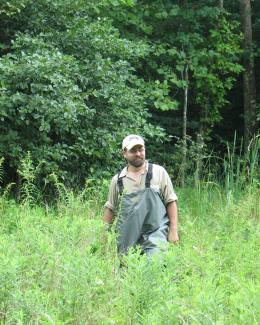Abstract
A pilot-scale field experiment demonstrated that a one-time amendment of emulsified vegetable oil (EVO) reduced groundwater U(VI) concentrations for one year in a fast-flowing aquifer. However, little is known about how EVO amendment stimulates the functional gene composition, structure, and dynamics of groundwater microbial communities towards prolonged U(VI) reduction. In this study, we hypothesized that EVO amendment would shift the functional gene composition and structure of groundwater microbial communities, and stimulate key functional genes/groups involved in EVO biodegradation and reduction of electron acceptors in the aquifer. To test these hypotheses, groundwater microbial communities after EVO amendment were analyzed using a comprehensive functional gene microarray. Our results showed that EVO amendment stimulated sequential shifts in the functional composition and structure of groundwater microbial communities. Particularly, the relative abundance of key functional genes/groups involved in EVO biodegradation and the reduction of NO3-, Mn(IV), Fe(III), U(VI) and SO42- significantly increased, especially during the active U(VI) reduction period. The relative abundance for some of these key functional genes/groups remained elevated over nine months. Montel tests suggested that the dynamics in the abundance, composition and structure of these key functional genes/groups was significantly correlated with groundwater concentrations of acetate, NO3-, Mn(II), Fe(II), U(VI) and SO42-. Our results suggest that EVO amendment stimulated dynamic succession of key functional microbial communities. This study improves our understanding of the composition, structure, and function changes needed for groundwater microbial communities to sustain a long-term U(VI) reduction.



